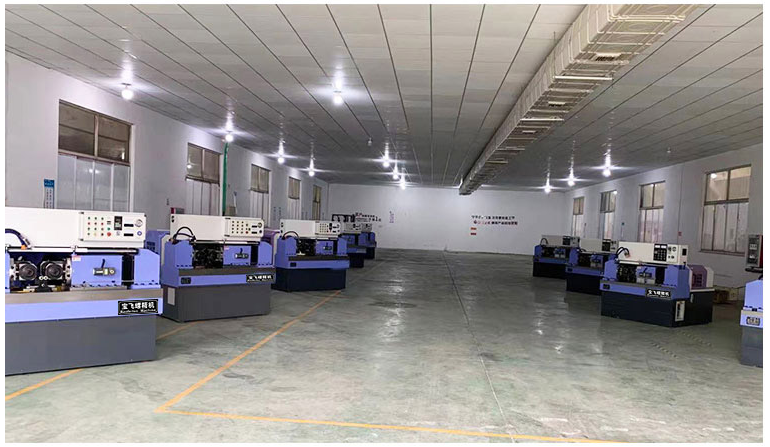
-
 Afrikaans
Afrikaans -
 Albanian
Albanian -
 Amharic
Amharic -
 Arabic
Arabic -
 Armenian
Armenian -
 Azerbaijani
Azerbaijani -
 Basque
Basque -
 Belarusian
Belarusian -
 Bengali
Bengali -
 Bosnian
Bosnian -
 Bulgarian
Bulgarian -
 Catalan
Catalan -
 Cebuano
Cebuano -
 Corsican
Corsican -
 Croatian
Croatian -
 Czech
Czech -
 Danish
Danish -
 Dutch
Dutch -
 English
English -
 Esperanto
Esperanto -
 Estonian
Estonian -
 Finnish
Finnish -
 French
French -
 Frisian
Frisian -
 Galician
Galician -
 Georgian
Georgian -
 German
German -
 Greek
Greek -
 Gujarati
Gujarati -
 Haitian Creole
Haitian Creole -
 hausa
hausa -
 hawaiian
hawaiian -
 Hebrew
Hebrew -
 Hindi
Hindi -
 Miao
Miao -
 Hungarian
Hungarian -
 Icelandic
Icelandic -
 igbo
igbo -
 Indonesian
Indonesian -
 irish
irish -
 Italian
Italian -
 Japanese
Japanese -
 Javanese
Javanese -
 Kannada
Kannada -
 kazakh
kazakh -
 Khmer
Khmer -
 Rwandese
Rwandese -
 Korean
Korean -
 Kurdish
Kurdish -
 Kyrgyz
Kyrgyz -
 Lao
Lao -
 Latin
Latin -
 Latvian
Latvian -
 Lithuanian
Lithuanian -
 Luxembourgish
Luxembourgish -
 Macedonian
Macedonian -
 Malgashi
Malgashi -
 Malay
Malay -
 Malayalam
Malayalam -
 Maltese
Maltese -
 Maori
Maori -
 Marathi
Marathi -
 Mongolian
Mongolian -
 Myanmar
Myanmar -
 Nepali
Nepali -
 Norwegian
Norwegian -
 Norwegian
Norwegian -
 Occitan
Occitan -
 Pashto
Pashto -
 Persian
Persian -
 Polish
Polish -
 Portuguese
Portuguese -
 Punjabi
Punjabi -
 Romanian
Romanian -
 Russian
Russian -
 Samoan
Samoan -
 Scottish Gaelic
Scottish Gaelic -
 Serbian
Serbian -
 Sesotho
Sesotho -
 Shona
Shona -
 Sindhi
Sindhi -
 Sinhala
Sinhala -
 Slovak
Slovak -
 Slovenian
Slovenian -
 Somali
Somali -
 Spanish
Spanish -
 Sundanese
Sundanese -
 Swahili
Swahili -
 Swedish
Swedish -
 Tagalog
Tagalog -
 Tajik
Tajik -
 Tamil
Tamil -
 Tatar
Tatar -
 Telugu
Telugu -
 Thai
Thai -
 Turkish
Turkish -
 Turkmen
Turkmen -
 Ukrainian
Ukrainian -
 Urdu
Urdu -
 Uighur
Uighur -
 Uzbek
Uzbek -
 Vietnamese
Vietnamese -
 Welsh
Welsh -
 Bantu
Bantu -
 Yiddish
Yiddish -
 Yoruba
Yoruba -
 Zulu
Zulu
types of thread rolling products
Types of Thread Rolling Products
Thread rolling is a widely used manufacturing process that creates threads on cylindrical or non-cylindrical materials, providing a strong, durable, and accurate finish without removing material. This technique has gained popularity in various industries due to its efficiency and the high-quality threads it produces. This article explores the various types of thread rolling products, examining their applications, advantages, and suitability for different manufacturing needs.
1. External Threads
The most common type of thread rolling product is the external thread. External threads are found on screws, bolts, and other fasteners. The thread rolling process for external threads typically involves two dies that compress the material to form the desired thread profile. This method is favored for its ability to produce high-strength threads and improved surface finish. External threads are widely used in construction, automotive, aerospace, and machinery sectors due to their robustness and reliability.
Applications - Fasteners such as screws and bolts - Machine components - Structural applications in buildings and vehicles
2. Internal Threads
Internal threads are formed inside a cylindrical component, such as nuts or threaded holes. Thread rolling internal threads utilizes a different approach, often involving the use of a tapping tool combined with rolling dies. This method provides great strength and improved thread quality while reducing the risk of burrs and other defects. Internally rolled threads are commonly used in assemblies where parts need to be securely fastened together.
Applications - Nuts and threaded inserts - Oil and gas equipment - Automotive parts that require secure fastening
3. Specialized Threads
In addition to standard external and internal threads, thread rolling also accommodates specialized thread types. These may include left-hand threads, fine threads, and custom pitches designed for specific applications. Manufacturers often opt for specialized threads to meet unique performance requirements, such as reducing vibration, increasing holding power, or accommodating unusual fitting designs.
Applications - Specialized machinery - Custom fasteners for unique applications - Applications where traditional threads would fail
types of thread rolling products

4. Multi-start Threads
Multi-start threads are designed to allow multiple lead paths at once, facilitating quicker engagement and disengagement. This can significantly improve assembly processes and reduce the number of turns needed to achieve a secure fit. Thread rolling can efficiently produce multi-start threads, making them ideal for applications in industrial and commercial settings where speed and efficiency are paramount.
Applications - Lead screws - Quick-adjustment mechanisms - Applications requiring rapid assembly
5. Superbolt Technology
Superbolt technology refers to a unique approach to thread rolling, where multiple smaller bolts are used in place of a single large bolt. This technology allows for higher torque application with lower tension, making it ideal for applications in heavy machinery and structural components. The thread rolling process for Superbolts results in reduced thread stress and enhances the overall strength of the fastening system.
Applications - Heavy machinery assemblies - Wind turbines - Oil and gas industry applications
Advantages of Thread Rolling Products
The process of thread rolling offers several advantages over traditional machining processes, including
- Strength Thread rolling does not remove material, which means the metal retains its grain structure, resulting in stronger threads. - Surface Finish The rolling process produces a smooth surface that is less prone to corrosion and wear. - Accuracy Thread rolling creates precise dimensions and profiles, vital for ensuring proper fitting and performance. - Efficiency Thread rolling is faster than traditional machining, allowing manufacturers to increase production rates and reduce costs.
Conclusion
Thread rolling products encompass a broad range of items crucial to various industrial sectors. From standard fasteners like screws and nuts to specialized and multi-start threads, the versatility of thread rolling is evident. Its advantages, including increased strength, improved surface finish, and efficiency, make it a preferred choice for manufacturers looking to enhance their product quality and performance. As technology evolves, thread rolling will continue to play a significant role in shaping the landscape of manufacturing and assembly processes.
